Introduction
This article aims to identify how the JDP (Justice and Development Party, also known as AKP) 1 instrumentalizes the human rights discourse and the IHH (Humanitarian Relief Foundation) in JDP’s quest for neo-Ottoman hegemony. It also questions how the JDP benefits from constructing consent in the foreign land by the IHH economically and politically. One of the questions this essay raises is: Why does the JDP need such a relation to an NGO, and how should we refer to this sort of relationship? To understand the dynamic between the two, the paper analyses JDP’s activities to influence and create a space for their economic and political interest outside Turkish territory, focusing explicitly on the Middle East. According to their interest, the JDP uses human rights in a general sense. They associate it with religious references and in a very anti-western fashion. This analysis provides an analytical perspective to the IHH usage and works around the same rhetorical use of human rights. The paper’s contention is that Erdogan uses human rights discourse to achieve his neo-Ottomanist foreign policy goals, and it reflects through the activities of the IHH in the field of human rights and humanitarian aid. Within the superstructure, political Islam operates with antagonisms and hegemonic ideals. To conceptualize this relationship this paper benefits from the Gramscian understanding of state-civil society relations in the case of the IHH. It also draws from existing literature on the definition of what GONGO’s (Government-Organized Non-Governmental Organizations) are and why this paper refers to the IHH as a GONGO.
Theoretical background and Literature review
Gramsci defines hegemony as the totality of structure and superstructure, in other words, one’s ability to control both means constructing a historic block. According to Ransome (2010), the hegemony or the legitimacy of that hegemony comes from its power of constructing consent. This consent could be an outcome of military power or a legal system, but to sustain the hegemonic position, the hegemonic social class generally needs other groups to “voluntarily” accept the hegemonic class’s norms and values. As Ransome stated, there are various ways to accomplish that, but this research focuses mainly on constructing voluntary consensus of the people. Therefore, it needs to define the relationship between the state and civil society. Gramsci argues that:
If a social group is formed which is one hundred per cent homogeneous on the level of ideology, this means that the premises exist one hundred per cent for this revolutionizing: that is that the ‘rational’ is actively and actually real. This reasoning is based on the necessary reciprocity between structure and superstructures, a reciprocity that is nothing other than the real dialectical process. (2000, p.189)
One of the examples of the AKP as a historical block belongs to Türkeş (2016). He defines the AKP as a product of a historical bloc. Also, in his terms, the JDP is a “holy alliance” that has both internal and external roots. He aims to explain the neo-Ottomanist agenda of the AKP and its need to be both a part of a historic bloc and a construct. Türkeş also argues that:
Davutoglu was clearly arguing for the construction of a foreign policy with enhanced solidarity among Muslims at its core, and although he did not say so bluntly, it can be inferred from his writings that he did not accept the nation-state as the basis of the international system. Rather, embedded in Davutoglu’s approach—and in his glorification of Ottoman history in the Balkans and the Middle East—is a preference for an imperial power that does not submit to the current international order. While never openly using the term neo-Ottomanism, in practical terms, this is what he advocated. (2016, p.199)
Türkeş’s emphasis on the Muslim core in Davutoglu’s (2013) approach is vital since it reflects the essence of the holy alliance within Turkey and the goal for the neo-Ottomanist foreign policy agenda in the Middle East. As Türkeş’s holy alliance analogy, Gramsci uses a castle analogy to describe civil society-state relations. He argues that the state is just a ditch outside of the castle. However, the castle itself is a civil society. The castle usually holds the outer walls. According to Ransome (2010), Gramsci here describes a critical aspect of state-society relations and argues that capitalist hegemony is established through the practices of institutions within civil society. Gramsci does not mean modern civil society organizations. He rather refers to churches, schools, and unions, but today’s political sphere has new actors such as NGO’s. Therefore, it could be added to Gramsci’s understanding of civil society.
Gramsci’s conceptualization of the civil society-state relationship is also essential to understand the concept of GONGO. The literature focusing on GONGO mainly considers the organizations’ backstory for defining an NGO as a GONGO. In the case of the IHH and the AKP, it is both applicable and non-applicable. The first problem is the IHH, as an NGO, is older than the AKP, but they both have a background in the National Outlook Movement. According to Hasmath, Hildebrandt & Hsu (2019), the historical background of an NGO is not the only thing that makes an NGO a GONGO, and there are also other components such as functions. If an NGO serves the interests of a government, there is a clear sign of relationality. Hasmath, Hildebrandt & Hsu (2019) argue that:
… We favour a functional dimension to construct a definition of a GONGO on the basis of its functions. GONGOs are usually founded and initially organized by the government to provide a service to society, one that the government is unable or unwilling to do. (p.6)
The authors make a valid point here, especially useful for the case for the IHH. To be more precise, the AKP propagates on behalf of IHH’s humanitarian aid. On the other hand, the IHH benefits from certain advantages, especially economically. They do not receive direct economic aid but always have a free advertisement on the streets or use the government’s network on national televisions. According to the newspaper Cumhuriyet (2019), they have unique opportunities such as sending empty envelopes and receiving donations from schools. Not all NGOs have the same opportunity. Besides, the IHH always returns the favor, and this paper provides examples of these events.
Methodology
This article draws from discourse analysis and content analysis. Discourse analysis strengthens this research with a comparative power. Since the research will focus on government responses and the IHH attitudes towards human rights, discourse analysis provides similarities, especially on the neo-Ottomanist agenda. The analysis includes Erdogan, former foreign minister Davutoglu, and the president of the IHH Bulent Yıldırım. Another critical part of this data collection is content analysis. Content analysis is a nonreactive form of data collection. It is usually used for descriptive studies. In this case, it provides human rights reports by the IHH and organizations’ activities in the Middle East. This paper aims to use coding for religious and neo-Ottomanist references. Methodologically, the research depends on both first-hand and second-hand documents in the literature review.
A Slippery Slope for Human Rights: The Middle East
The Middle East was always a ground for conflict. It is a place for significant socio-economic inequalities, religious and sect wars, and regimes that lack democratic legitimacy. Even though regimes were not democratic before the Arab spring, one can argue that they had stability with their parties in power. According to Altunışık (2008), Turkey had some opportunities to be a role model in the Middle East with its growing relationship with the EU and its place in the Western Alliance. She also refers to moderate Islam’s acceptance as a “role model” by the Middle Eastern countries. One of the main targets was to prove to the EU that Turkey is a country that advocates for human rights. Turkey tried to put this image in its bilateral relations with the Middle Eastern countries. With this approach, the Turkish Bourgeoisie, mainly members of MÜSİAD, reflect the state identity, which is referred to as Turkish-Islamic synthesis. Mainly Anatolian originated groups benefited from this identity. However, in the literature, Ayata (2015), Özpek & Demirağ (2014), Keyman (2016) all state that there was a rapid change in Turkish position due to the Arab Spring. Furthermore, the Turkish Bourgeoisie lost a privileged position due to governments involvement in sect wars in the Middle Eastern countries and doing it considerably later than the West. Another issue was “backing of the wrong horse” after the Arab Spring. The AKP was seen as the Turkish branch of the Muslim Brotherhood by the Middle Eastern countries. There are two examples: both, the government and the IHH were dedicated in the sense of using human rights discourse as a way of gaining support for the foreign policy goals.
Firstly, this paper will focus on is the Palestinian issue and the Mavi Marmara. This issue is vital since the event shows how a GONGO can be left alone if it suits the governments’ interests. Secondly, it will focus on the Syrian case. This case provides an example of how the IHH, a human rights NGO, can be pro-war and can use its NGO status to function on behalf of the government, mainly saving the government from further conflict.
“Mavi Marmara”: The Conflict
Mavi Marmara happened in 2010 but, it had echoed within domestic and international politics for a long time, it especially affected relations between Israel and Turkey. Within the IHH website, there is a whole section dedicated to the Mavi Marmara events. The IHH categorizes the incident as a “massacre”. The IHH (2020) describes the events as The Gaza Freedom Flotilla, consisting of Mavi Marmara, Sfendoni, Challenger I, Eleftheri Mesogios, Gaza I, and Defne Y ships that set out to deliver humanitarian aid to Gaza and carrying humanitarian aid supplies, faced with intervention. During this attack and the ongoing process, ten humanitarian aid volunteers lost their lives, 56 of them were seriously injured. Fleet participants were imprisoned without any legal basis, the wounded were handcuffed, some wounded were held in cells for days, and they were tortured and ill-treated. (trans., p.1) On the same page, the IHH shares a section called messages from countries, within that section, they quote Erdogan’s message: This is a state terror. Regardless of the reason, this attack by Israel is a state terror that is completely contrary to international law. The current Israeli government has made it clear that it does not want peace in the region. This is an act that will not bring peace to its people and threaten peace in the region. It should be known that we will not remain silent and unresponsive to this inhuman attack. (2020, trans., p.1)
In their discourse, they define the events with primarily religiously related words such as martyr (Şehit), cruelty (zulüm in Turkish), or the innocent (Mazlum) for the Palestinian issue and Mavi Marmara. Once this event turned into an international crisis and Turkey could not find the support it sought from the international community, Erdogan started to accuse the IHH, which is a function of a GONGO. According to Cumhuriyet News (2016), Erdogan had conflicting attitudes towards Mavi Marmara. In the video, Erdogan first (2014) supports the IHH against Israel’s attack but in 2016, he blames IHH for not getting prime ministers (his) permission to deliver humanitarian aid. The year 2016 was very conflictual, especially for foreign politics and domestic politics due to Turkey’s authority crisis. The coup attempt negatively affected Turkish economic stability. Turkey started to be involved in the Syrian war very actively, and the plane crisis with Russia affected the country negatively.
Therefore, one can argue that Erdogan switches his position on Mavi Marmara and Israel to gain some manoeuvre space in the Middle East. Even if it meant going after an NGO, which delivers Turkish propaganda in the international community. Also, in 2014 after the UN conference, “the world is greater than five” became an official slogan for Erdogan. This motto is a product of the orientalist discourse on human rights. When it comes to Palestinian issues or any human rights issue when Erdogan feels he has the moral upper ground, he urges to remind his motto, and the government and the media like to declare him as the father of the innocent Muslims all around the world. This declaration often comes with a reminder of the Ottoman past, specifically with Abdülhamid, the Ottoman Sultan who used Ottomanist ideology to keep the Arabs in the empire. According to Tokdoğan (2019, p.115), “Erdogan and his followers imagined, both Erdogan and Abdülhamid as the savior of the Muslims, worriers against western subjugation and their Ottomanist ideas as a cement for Muslim union.” (Trans.)
The following part focuses on one speech by Erdogan and a content analysis based on a report the IHH published in 2019. Erdogan, in the case of Israel, has different attitudes depending on the conjuncture. According to Anadolu Agency (2019), he argues that Israel historically expands its unlawful invasion in Palestine. Erdogan (2014) also uses his signature phrase the “world is greater than five” and attacks the UN for not condemning Israel’s action on the peninsula. One can deduce from his speech that he uses human rights discourse as a tool for pressure as this paper introduced before. AA (2014) introduces the news with a subtitle as “this proves that Erdogan is the leader for the Ummet.” Erdogan also criticizes Israel for inhuman barricades for humanitarian help. The news also provides Palestinian media comments and leaders support for Erdogan for him being the voice of the Muslim people in the UN. However, Erdogan could not hold a strong position in the hegemonic world order, which is one of the problems with neo-Ottomanism, and he sometimes softens his speech towards Israel when the conjuncture changes. The Directorate of Communication office (2020) recently published another speech of Erdogan, where he is more moderate towards Israel. This is also due to the recent tension with the USA, especially after Biden was elected who has different plans about the Middle East compared to the Trump administration. The announcement starts with Erdogan coming out of a mosque, which is relevant to this case since Erdogan likes to deliver humanitarian messages to Muslims after Friday prayers, as an image-building practice. It is also related to his religious understanding of human rights discourse. On the contrary to his UN speech, Erdogan states:
“Our relations with Israel at the point of intelligence have not already been severed. We are having some trouble with the people at the top here. We cannot accept Israel’s attitudes towards the Palestinian territories. This is where we diverge from Israel. Otherwise, we wish to take our relations with them to a better place. “(2020)
There is a difference in the tone of his speech. The IHH urges to fill that gap. In the Turkish political scene, Mavi Marmara is no longer an internal debate Erdogan does not mention it since 2016. On the contrary on the IHH website, one can find a section under recent activities according to which the IHH sponsors panels, conferences, protests about Mavi Marmara and continues to propagate using a religious orientated humanitarian discourse. They refer to their volunteers who died on that ship as martyrs (Şehit), which in Turkish means someone who died on Islam’s path. The word is very political and commonly used in everyday Turkish political discourse. What makes the IHH different from other NGOs is that the IHH does not pressure the Turkish government. Instead, they pressure the UN to act on the Mavi Marmara issue. Other than that, the IHH has similar methods to Erdogan. They organize gatherings after Friday prayers. Also, their tone is very similar to Erdogan’s UN speech. The gathering starts with a historical reminder of Israel’s invasion of Palestine, continues with religious references and the importance of Jerusalem for the Muslim world, which is in line with Erdogan’s discourse on the issue. President of the IHH does not push the Turkish government to take action, rather threats protesting Israel embassies. The other important document this paper analysis is called the Humanitarian report on Islam World (2019). The content offers this research the ideological commonalities of the government and the IHH. The report (2019) starts with criticizing the Western colonial past and new methods of exploitation of the West, but it avoids saying anything about conflicts in the Ottoman past. In addition, the report blames the division of the Ottoman territory as the result of the actions of western countries. The report (2019, p.33) states that Turkey and some other Muslim countries carry the burden of the conflicts just by themselves. In another part, the authors of the report (2019, p.16) argues that “Turkey is a role model country for other Islam countries in human rights issues,” which indicates one of the main neo-Ottomanist agendas: “proactive humanitarian diplomacy” as Davutoglu (2013) refers to it. On the other hand, the question “How is Turkey a role model for human rights for Middle East countries?” remains unresolved. Other than these parts, the report also offers us an ideological discourse, same as the governments, especially on the Syrian issue.
The Syrian Civil War
Before the Syrian civil war, the AKP and MÜSİAD had good relations and investments in Syria. According to Uzer (2018, p.34), Turkey was not just involved in exploitation. There were mutual cultural exchanges and humanitarian and egalitarian discourses, making Turkey more appealing. However, Turkey’s involvement in the war has been a result of the failure of neo-Ottomanism in the Arab Spring. Turkey was too late to join the NATO action in Libya, then they acted in Egypt, but it backfired due to government instability. Therefore, Turkey wanted to be more active in the Syrian war. Also, other problems were tying Turkey directly to the issue. The first was the massive migration wave: refugees wanted to use Turkey as a road to Europe. Secondly, Turkey had a securitization discourse, where the AKP was using the PKK and YPG existence as an agenda-setting issue. Thirdly, even though Besar Esad and Erdogan had good relations, even some historical problems (Hatay issue, water conflict) were set aside for a while. On the other hand, as a part of his neo-Ottomanist policy, Erdogan wanted more control and someone from the Sunni sect for the Syrian government. Also, Turkey supported the Muslim Brotherhood throughout the Arab revolts and looking for a similar partner in Syria. Unlike in any other case, the Syrian issue was more conflictual. According to Saraçoğlu (2018), the “AKP saw ideological vacuum which could be filled by Neo-Ottomanism” (p.22); even though Turkey lacked the military and economic power of Russia, the USA, or Saudi Arabia had. Saraçoğlu states that the AKP started to feed an Islamist opposition against the existing regime. While doing so, they used human rights discourse and humanitarian aid as a tool for legitimizing what Saraçoğlu (2018) refers to as “Islamist nationalism,” and once again the IHH took the initiative where the AKP lacked legitimacy or resources.
Erdogan both suffered and benefited from the Syrian civil war, but it was about the conjuncture rather than “Turkey’s soft power.” First, Erdogan could not find the space for a direct intervention because the Obama administration was involved in the Middle East as well as Russia. According to Senturk (2017, p.88),”…the US and other major Western powers gradually backtracked from their support for democratization in Egypt and Syria, leaving Turkey alone in a dangerous neighbourhood populated with non-democratic regional powers.” Turkey also had problems with the PYD. Therefore, the government openly supported the Free Syrian Army. There were also other claims at the beginning of the war. According to ODATV (2012), “Turkish government-supplied weapons to rebels using the IHH’s special position as an NGO. The news also categorizes the IHH as an organization tied with Muslim Brotherhood.” The IHH denied supplying any weapons, but it was not the only news about weapons supplied to rebels. In 2014, Can Dundar covered a particular case about National Intelligence Agency (MİT). According to the BBC (2017), Can Dundar made his case with pictures right after Erdogan denied the delivery of weapons and claimed Dundar is a traitor. Dundar was arrested in 2015, which was a Human Rights violation. Yet, in Turkey, the imprisonment of journalists is quite frequent. Dundar (2017) referred to Turkey as the biggest open prison for journalists in the world. Erdogan, on the other hand, from the beginning of the war, started to use human rights discourse to attack the Syrian regime and gain support from the international arena to legitimize action. He blamed Assad for the deaths in human trafficking activities, tried to get the EU aid for “keeping” Syrian refugees away from Europe. The irony in that situation is a deadlock for refugees, but international actors cannot resist the situation because Turkey holds on to a deadlock position. According to Sol News (2021), in 2020 the Turkish government showed that it could risk refugee’s lives if the EU does not fit their wishes. The Turkish government in the summer of 2019 let refugees believe they can access Europe freely. Many people encountered the concept of “push back” borders and lived in no man’s land for weeks. This was not the only time Erdogan used human rights discourse for provocation reasons in 2011. He argued that:
“The future is not built on the blood of the oppressed; otherwise history will commemorate them as leaders who feed on blood. You, Assad, are on your way to open that page right now.” (BBC, 2011)
Once again, he used the word “mazlum” in a speech showing his understanding of religious human rights. Over the following years, Erdogan started to be vocal about an operation towards Syria. The world was more concerned about growing ISIS power, but according to BBC (2013), Erdogan was sure that Assad used chemical weapons on Syrian citizens. He argued that the Turkish government has to intervene in Syria for the sake of humanity. In this chaos, Turkey started a military campaign against Syria, but According to Human Rights Watch (2019), the government targeted the YPG/PYD destroyed cities, forced people to migrate, which caused the displacement crises, although other local forces were fighting against ISIS. Erdogan tries to solidify its position with securitization discourse and human rights discourse because the change in U.S. – Trump was less invested in the Middle East than Biden’s plans. According to AA’s news (2021);
By taking all these measures, our country has protected Europe from irregular migration and terrorism and secured NATO’s South Eastern border. What we do reflects our values; it supports our claim that Turkey is the hope of the oppressed, the patron of the innocent and, the key to the solution. (2021)
To rebuild the cities in Syria, Erdogan called for the bourgeoisie to invest once again in Syria. According to AA (2018), MÜSİAD opened branches in Syria after Turkish operations. Additionally, the government established three departments in Syrian cities and universities. According to Human Rights Watch (2019), Turkey also caused lots of humanitarian damages (war crimes by the Free Syrian Army) in Syria. The government could not find support in the Turkish Bourgeoisie to restructure; that is why the government needed the IHH, the GONGO stepped in for government functions.
The IHH, as stated in the above chapters, usually matches the government’s agenda, but the Syrian case is unique because it is where the IHH compromises fundamental human rights and supports the war. It does not just support the war also legitimizes Turkey’s action against Kurdish groups. Domazeti (2021), the IHH’s research group (Insamer) publishes documents about this matter.
In 2015, the PYD/YPG provoked ISIS to attack Christian villages such as Tel Goran on the Khabur River to annex and occupy them. It is also well-known among Aramean Christians that the PYD/YPG with its divide-and-rule tactics has been paying a tiny group of Aramean puppets to promote their romanticized and misleading narrative of a democratic society in Rojava (“Western Kurdistan”). For instance, more than 90% of the “Syria Military Council” (MFS), being the counterpart of the YPG Kurds, consists of non-Christian Arabs and former ISIS fighters who have been recruited by the PYD/YPG Kurds, who ultimately are controlling the MFS.
In this part of the report, there is one crucial sentence: the report clearly states that the YPG “provoked” ISIS for an attack against Christians, which is a clear indication of an ideological response to ongoing conflicts, similar to the government’s. Besides, reports make connections between the US and the PYD on petrol treaties in another document published in 2020. These documents show a pattern of an anti-western attitude of IHH, which supports the government agenda and takes a step forward since the government does not like to confront the US directly.
In 2018 the most unfortunate speech on human rights was given by the president of the IHH. It is unfortunate since a Humanitarian NGO openly supports war. According to Cumhuriyet (2018), “The missiles launched today did not cool us down. There were very few hits, and we do not think those facilities were destroyed; there was no damage to the facilities.” (Trans.)
In addition to war propaganda, as this research takes its GONGO definition, there are essential functions that states should but could not do. In the IHH’s example, this can be identified as rescuing woman prisoners or opening pathways for migrants. One extraordinary project (two rooms, one hope) is rebuilding cities (Afrin, Idlib) that the Turkish army invaded and destroyed. Erdogan campaign’s last stop was for women in prisons in Syria’s, where woman activists of the IHH meet with Emine Erdogan and Tayyip Erdogan. The other crucial ideological similarity comes out of conferences the IHH prepares. One exciting title was “Ottoman Syria” in a conference which is mainly about human rights violations in Syria. Many of the documents from the IHH, such as the Humanitarian Report in the Islamic World (2019) or in other reports such as The Problems of Syrian Kurds: PYD and YPG (2020), mainly state that, after the Ottoman hegemony ended, the West created the conflicts and only Turkey has the power to bring peace again. Turkey’s legitimacy comes from the historical ties and religion, which is the same Davutoglu (2012) suggests as discussed before in this paper. To make it more concrete, Çelik and Güneri (2016) interviewed an IHH volunteer. The interview suggests that:
The Ottoman Empire was dissolved, we are a new state, and we cannot say the developments there do not interest us. A Bosnian or Egyptian looks to Turkey for help when he faces problems. You cannot escape even if you wish. […] In these aid activities, even if you do not spend any special efforts, sometimes there is a perception that the aid is provided by the state in Turkey. This is added to Turkey’s power and influence. The Turkish flag on our vest and activity board at the site have an impact. Many people do not know that the IHH is a non-governmental organization. […] We realize that the local people do not see us as members of the İHH; they do not have detailed information about the İHH. They say the Turks came, built a mosque or school. They say people coming from Turkey built these. All of our activities contribute to Turkey’s recognition and visibility. (p.437)
As the IHH volunteer stated in this interview, the IHH has an agenda for image building for the Turkish government. Aras and Akpınar (2015, p. 237) state that Turkish NGOs have the power of absence of conditionality and this serves Turkish foreign policy goals. In the same research, when they asked another volunteer, he rejects the claim they represent an ideology and promotes the importance of the Turkish flag and Ottoman cultural heritage. More importantly, the IHH becomes a holding ground where the Turkish government has a crisis of the neo-Ottomanist image, or on a more personal level, Erdogan’s image of the leader of innocent Muslims. In the case of “open a path to Aleppo,” the IHH (2016) uses an aggressive language for a so-called humanitarian mission to aid people in Aleppo:
I am addressing the nationalists. Aleppo is a Turkmen city. If you are a nationalist, where are you, why do not you go to the squares? I appeal to Islamists, why are not you on the streets? If you do not go out on the street, these bombs will find you one day. Because these bombs won’t stop. After they divide Syria, they will divide Turkey. (Trans.)
This quote is crucial to understand the similarities between the Turkish government and theIHH’s approach towards the Syrian issue. It has a particular ideology, specifically a Turkish Islamic synthesis and neo-Ottomanist foreign policy goals. It is antagonizing against minorities and very unlikely to be intended to defend human rights in general.
Conclusion
This article provided examples of how a GONGO can function as a tool for a government’s goals outside of its territory. In the case of the IHH, the goal is to contribute to the so-called neo-Ottoman hegemony Turkey tries to establish in the Middle East, but its hegemony is decomposed by the circumstances. However, the crises and responses of each actor after the Arab Spring enables this paper to identify the IHH as a GONGO. The functionality definition suits the IHH’s understanding of humanitarian activities. The cases of Mavi Marmara and the Syrian war show us that a GONGO can be thrown under the bus if the government needs to strengthen its position in the world hegemonic order. On the other hand, in Syria’s case, this research provided evidence that a GONGO can do its government propaganda and bring some functions if the government is unable to. To trace these functions, the paper benefited from a discourse analysis on the Turkish government’s understanding of putting Sunni Muslims in the center of the human rights discourse and a content analysis provided by the reports of the IHH, with the same ideological responses on human rights matters. All in all, the two actors of the superstructure have a neo-Ottomanist agenda on their discourses and actions towards human rights in the Middle East – even though their quest to become a hegemonic power is contested every day in the region.
Sources AA (Ed.). (2017, July 17). MÜSİAD SURIYE’DE ticaret Merkezi ve ŞUBE açacak. Aksoy, M. (2019, May 16). The Syrian Civil war in its sixth year and the failure of the Aktürk, Ş. (2017). TURKEY’S ROLE IN THE ARAB SPRING AND THE SYRIAN CONFLICT. Insight Turkey, 15(4), 87-96. Altunışık, M. B. (2008). The Possibilities and Limits of Turkey’s Soft Power in the Middle East. Insight Turkey, 10(2), 41-54. Retrieved April 8, 2021, from https://www.insightturkey.com/articles/the-possibilities-and-limits-of-turkeys-soft-power-in-the-middle-east Altunişik, M B &. Martin, L. G. (2011): Making Sense of Turkish Foreign Policy in Aras, B. & Akpinar, P. (2015) The Role of Humanitarian Ayata, B. (2015) Turkish Foreign Policy in a Changing Arab World: Rise and Fall of a BBC Türkçe. (2011, November 16). Erdoğan’dan SURIYE’YE SERT ÇIKIŞ. Retrieved April 06, 2021, from https://www.bbc.com/turkce/haberler/2011/11/111115_syria_turkey BBC Türkçe. (2013, September 06). Erdoğan: Kimyasal SALDIRIYI Esad’ın düzenlediği açık. Retrieved April 08, 2021, from https://www.bbc.com/turkce/haberler/2013/09/130906_g20_erdogan BBC Türkçe. (2014). Erdoğan: PYD, Özgür SURIYE ORDUSU’NUN DESTEĞINI Kabul etti. Retrieved April 08, 2021, from https://www.bbc.com/turkce/haberler/2014/10/141024_kobani_oso BBC Türkçe. (2020, December 25). Cumhurbaşkanı ERDOĞAN: İsrail’le ilişkileri DAHA iyi BIR NOKTAYA TAŞIMAYI arzu EDIYORUZ – TURKCE. Retrieved April 02, 2021, from https://www.bbc.com/turkce/live/haberler-dunya-55444226 Cumhuriyet. (2019, July 28). İHH, okullardan para Toplamaya devam edecek. Retrieved April 08, 2021, from https://www.cumhuriyet.com.tr/haber/ihh-okullardan-para-toplamaya-devam-edecek-1509364 Cumhuriyet. (2016, December 10). Arşiv Unutmaz… Erdoğan MAVI Marmara için BAKIN Neler söylemişti. Retrieved April 07, 2021, from https://www.cumhuriyet.com.tr/video/arsiv-unutmaz-erdogan-mavi-marmara-icin-bakin-neler-soylemisti-643173 Cumhuriyet. (2018, April 14). İHH Genel Başkanı Bülent Yıldırım: Çok az FÜZE ATILDI, Içimizi serinletmedi. Retrieved April 02, 2021, from https://www.cumhuriyet.com.tr/haber/ihh-genel-baskani-bulent-yildirim-cok-az-fuze-atildi-icimizi-serinletmedi-958125 Çelik, N. & İşeri, E. (2016) Islamically oriented humanitarian Davutoglu, A. (2012) Principles of Turkish Foreign Policy and Regional Political Structuring, SAM Vision Papers, 1(39). Davutoglu, A. (2013). Turkey’s humanitarian DIPLOMACY: Objectives, challenges and prospects. Nationalities Papers, 41(6), 865-870. doi:10.1080/00905992.2013.857299 Doğan, S. (2020) “Amerika-PYD Petrol Anlaşması”, İNSAMER, 1-4. Domazeti, R. (2021) “PKK/YPG Instrumentalizes ISIS to Gain International Legitimacy”, İNSAMER. 1-3. Directorate of Communication. (2020, November 09). “The current global system, which protects the mighty rather than those who are right, cannot continue as it is”. Retrieved April 07, 2021, from https://www.iletisim.gov.tr/turkce/haberler/detay/the-current-global-system-which-protects-the-mighty-rather-than-those-who-are-right-cannot-continue-as-it-is Directorate of Communication. (2020, February 26). “We make every effort to prevent a European Economic and Social Committee (Ed.). (2019, May 07). Can Dündar: “do not leave Gramsci, A. (2000). The Gramsci reader: Selected writings 1916-1935. In 1297678908 955467052 D. Forgacs (Ed.), The Gramsci reader: Selected writings 1916-1935 (pp. 189-222). New York: New York Univ. Press. Hamsici, M. (2017, June 15). MİT tir’ları Davası: Neler yaşandı? Retrieved April 05, 2021, from https://www.bbc.com/turkce/haberler-turkiye-40275619 Hasmath, R. Hildebrandt, T. & Hsu J. Y. J. (2019) Human Rights Watch. (2020, January 29). World report 2020: RIGHTS trends in Syria. Retrieved April 10, 2021, from https://www.hrw.org/world-report/2020/country-chapters/syria#9cedca Keyman, E, F. (2016) Turkish foreign policy in the post-Arab Spring era: from proactive to Özpek, B,B. & Demirağ, Y. (2014) Turkish foreign policy after the ‘Arab Spring’: from IHH. (2016, December 14). “Halep’e Yol Açın” Konvoyu Yola ÇIKTI: İhh İnsani YARDIM VAKFI. Retrieved April 06, 2021, from https://www.ihh.org.tr/haber/halepe-yol-acin-konvoyu-yola-cikti IHH. (2019, April 08). Suriye Sempozyumu: İhh İnsani YARDIM VAKFI. Retrieved April IHH. (2019, June 15). 18 ayrı başkentte İDLIB Eylemi: İhh İnsani YARDIM VAKFI. Retrieved April 01, 2021, from https://www.ihh.org.tr/haber/18-ayri-baskentte-idlib-eylemi IHH. (2020, January 24). Kudüs için ‘umut Cuması’: İhh İnsani YARDIM VAKFI. Retrieved April 03, 2021, from https://www.ihh.org.tr/haber/kudus-icin-umut-cumasi IHH. (2020, February 10). Yeni umut: Bir Yaşam EVI: İhh İnsani YARDIM VAKFI. Retrieved March 30, 2021, from https://www.ihh.org.tr/haber/yeni-umut-bir-yasam-evi IHH. (2020, May 30). Mavi Marmara 10 yaşında: İhh İnsani YARDIM VAKFI. Retrieved March 28, 2021, from https://www.ihh.org.tr/haber/mavi-marmara-10-yasinda Insamer. (2019). Islam Dünyasında Insani Durum. Islam Dünyası Araştırma, (107), 1-41. Odatv. (2012, September 15). IHH muhaliflere silah taşıyor’. Retrieved April 08, 2021, from https://odatv4.com/ihh-muhaliflere-silah-tasiyor-1509121200.html Ransome, P. (2011). Antonio Gramsci: Yeni bir giriş. In 1297656593 955452697 A. I. Başgül (Trans.), Antonio Gramsci: Yeni bir giriş (pp. 175-192). İstanbul: Dipnot. Uzer, U. (2018). The Rivival Of Ottomanism In Turkish Foreign policy: “The World Is Greater Than Five”. Turkish Policy Quarterly, 16(4), 29-36. Saraçoğlu, C. (2018). The Syrian Conflict And The Crises of Islamist Nationalism In Turkey. Turkish Policy Quarterly, 16(4), 17-26 SoL(2021, March 01).Bir pazarkule işkencesi: ‘GERI ITME’. Retrieved April 03, 2021, from https://sol.org.tr/haber/bir-pazarkule-iskencesi-geri-itme-27047 Tokdoğan, N. (2018). Yeni Osmanlıcılık: Hınç, nostalji, narsisizm. Fatih, İstanbul: İletişim. Turhan, Y & Bahçecik, Ş, O. (2021) The agency of faith-based NGOs in Turkish humanitarian aid policy and practice, Turkish Studies, 22:1, 141-159, DOI:10.1080/14683849.2020.1756786 Türkeş, M (2016) Decomposing Neo-Ottoman Hegemony, Journal of Balkan and Near Yıldız, M. (2020). SURİYELİ KÜRTLERİN PYD/YPG SORUNU. İNSAMER Araştırma, (124), 1-6.
Retrieved April 07, 2021, from https://www.aa.com.tr/tr/ekonomi/musiad-suriyede-
ticaret-merkezi-ve-sube-acacak/1206383
responsibility to protect. Retrieved April 07, 2021, from https://insamer.com/en/the-
syrian-civil-war-in-its-sixth-year-and-the-failure-of-the-responsibility-to-
protect_1542.html
the Middle East under AKP, Turkish Studies, 12:4, 569-587
NGOs in Turkey’s Peacebuilding, International Peacekeeping, 22:3, 230-247, DOI:
10.1080/13533312.2015.1033374
Regional Actor?, Journal of European Integration, 37:1, 95-112, DOI:
10.1080/07036337.2014.975991
NGOs in Turkey: AKP foreign policy parallelism, Turkish Studies, 17:3, 429-448,
DOI:10.1080/14683849.2016.1204917
humanitarian crisis in IDLIB”. Retrieved April 06, 2021, from
https://www.iletisim.gov.tr/turkce/haberler/detay/we-make-every-effort-to-prevent-a-
humanitarian-crisis-in-idlib
Turkey alone. Erdogan is NOT TURKEY”. Retrieved April 07, 2021, from
https://www.eesc.europa.eu/en/news-media/press-releases/can-dundar-do-not-leave-
turkey-alone-Erdogan-not-turkey
Conceptualizing government-organized non-governmental organizations, Journal of Civil Society, 15:3, 267-284, DOI: 10.1080/17448689.2019.1632549
buffer state, Third World Quarterly, 37:12, 2274-2287, DOI:
10.1080/01436597.2016.1199260
agenda-setter state to agenda-entrepreneur state, Israel Affairs, 20:3, 328-346, DOI:
10.1080/13537121.2014.922806
01, 2021, from https://www.ihh.org.tr/haber/suriye-sempozyumu
Eastern Studies, 18:3, 191-216, DOI: 10.1080/19448953.2016.1176388

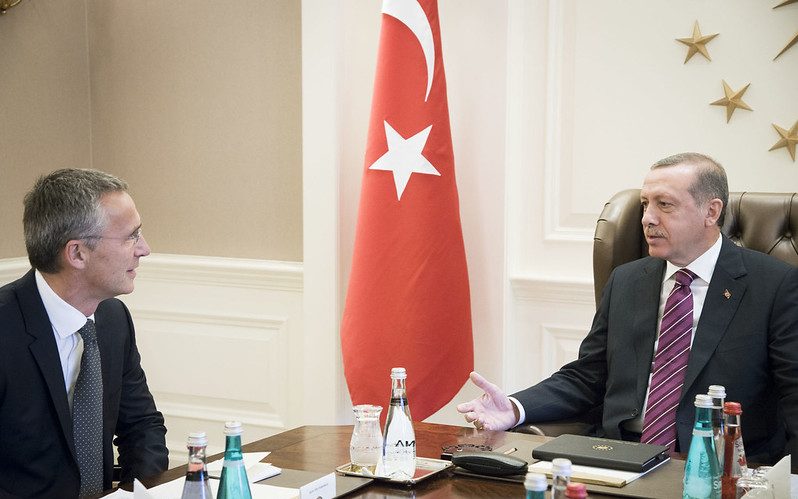
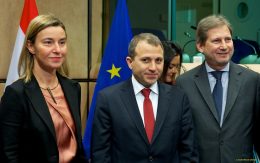
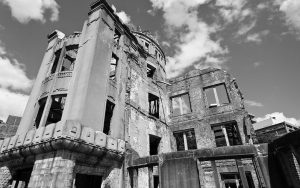
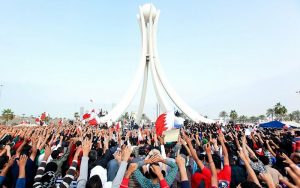
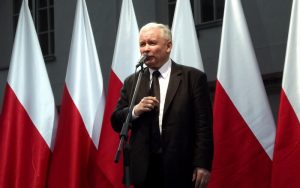
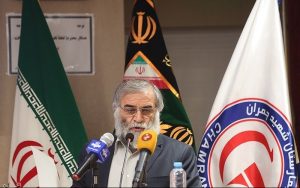

Be First to Comment